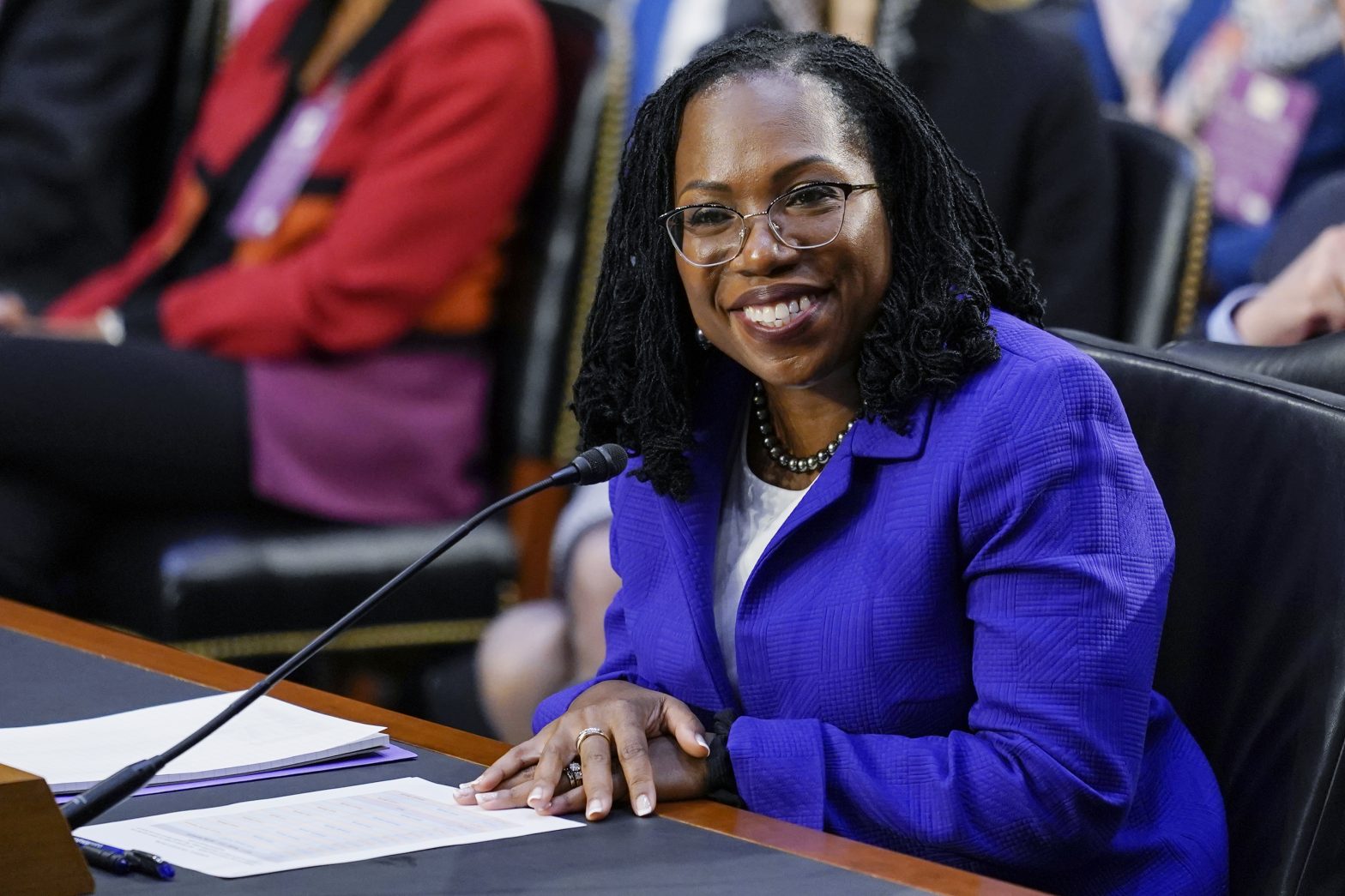Public Defenders Move America Closer to Equal Justice Under the Law
COMMENTARY

From the time of the United States’ founding, the principle of “equal justice under the law” has been the quintessential tenet of American democracy.
The words are engraved above the entrance of the U.S. Supreme Court as a reminder to all who enter that the American justice system is supposed to be fair, impartial, and just to all people — not just the wealthy and powerful.
Unfortunately, during Judge Ketanji Brown Jackson’s Supreme Court confirmation hearings, this principle has come under repeated attack by Republican senators, who have criticized Jackson for the people she represented as a former federal public defender.
These criticisms are not just misguided; they are also a blatant attack on the Constitution and one of the Supreme Court’s most historic and important decisions.
This month marks the 59th anniversary of the Supreme Court’s decision in Gideon v. Wainwright. In Gideon, the court found that the Sixth Amendment’s promise to a fair and speedy trial requires states and the federal government to provide attorneys to criminal defendants who cannot afford their own.
The ruling has become deeply ingrained in the fabric of American society. So much so that nearly all Americans know that they are entitled to an attorney and that the court must appoint one, regardless of their personal wealth or income.
By attacking Jackson for doing her job, Senate Republicans are trying to score cheap political points while making a mockery of public defenders’ role in the American justice system and our constitutional right to counsel.
Sadly, Jackson is only the latest target in a string of nominees subject to these nonsensical attacks. For example, Nina Morrison, President Biden’s nominee to serve as a federal judge in the Eastern District of New York, faced similar criticism from Sens. Ted Cruz, R-Texas, and Josh Hawley, R-Mo., for her work representing — and freeing — wrongfully convicted people during her time as senior litigation council for the Innocence Project.
Cruz went so far as to blame Morrison — a person who has dedicated her life to freeing the innocent — for the nationwide spike in crime.
It’s time to set the record straight. Attorneys who enter public defender service are choosing to forgo more lucrative careers in private practice to work excessive caseloads with less professional support and even smaller budgets. They do so because they are committed to equal justice for all. Politicians should be admiring these individuals for their sacrifices, not admonishing them.
Consider these statistics: According to both Gideon’s Promise, a nonprofit public defender organization, and The New York Times, 80% of people accused of crimes in the United States are too poor to hire a lawyer and must rely on public defenders during their trials.
Despite their importance, public defenders are critically under resourced. For example, in 2020 four out of five criminal defendants were indigent in San Diego County, yet the county’s district attorney’s office budget more than doubled that of its public defender’s office.
The need for more public defenders could not be clearer or more compelling.
Until recently, judges with backgrounds as public defenders, civil rights attorneys, or voting rights experts have been a rarity. As Alliance for Justice has been pointing out for years, the vast majority of federal judges spent their legal careers as corporate lawyers or former prosecutors before joining the bench. This includes six of the nine current Supreme Court justices. As a result, our courts have become more and more stacked in favor of the wealthy and powerful.
Since taking office, Biden and Senate Democrats have taken a different approach. During Biden’s first year, they confirmed a record number of highly qualified, demographically and professionally diverse nominees to the federal bench.
Among the first 71 of Biden’s nominees, 75% are women, nearly 65% are people of color, and an extraordinary 30% are former public defenders.
The benefits of adding this form of experiential diversity are immense and Jackson will add a highly valuable perspective to our nation’s highest court.
Not only will her experience as a former public defender add depth to the Supreme Court’s decision-making, her confirmation will also pave the way for more former public defenders to be nominated and confirmed in the future.
More judicial panels featuring judges who have experience fighting for the rights of ordinary people will increase Americans’ faith in our legal system’s ability to produce equal justice and fair results.
In other words, Jackson’s experience brings us closer to fulfilling the promise engraved above the Supreme Court. She deserves a swift confirmation.
Rakim H. D. Brooks is the president of Alliance for Justice and a public interest appellate lawyer. Alliance for Justice is a national association of over 130 organizations, representing a broad array of groups committed to progressive values and the creation of an equitable, just and free society. You can reach him by email here.
























